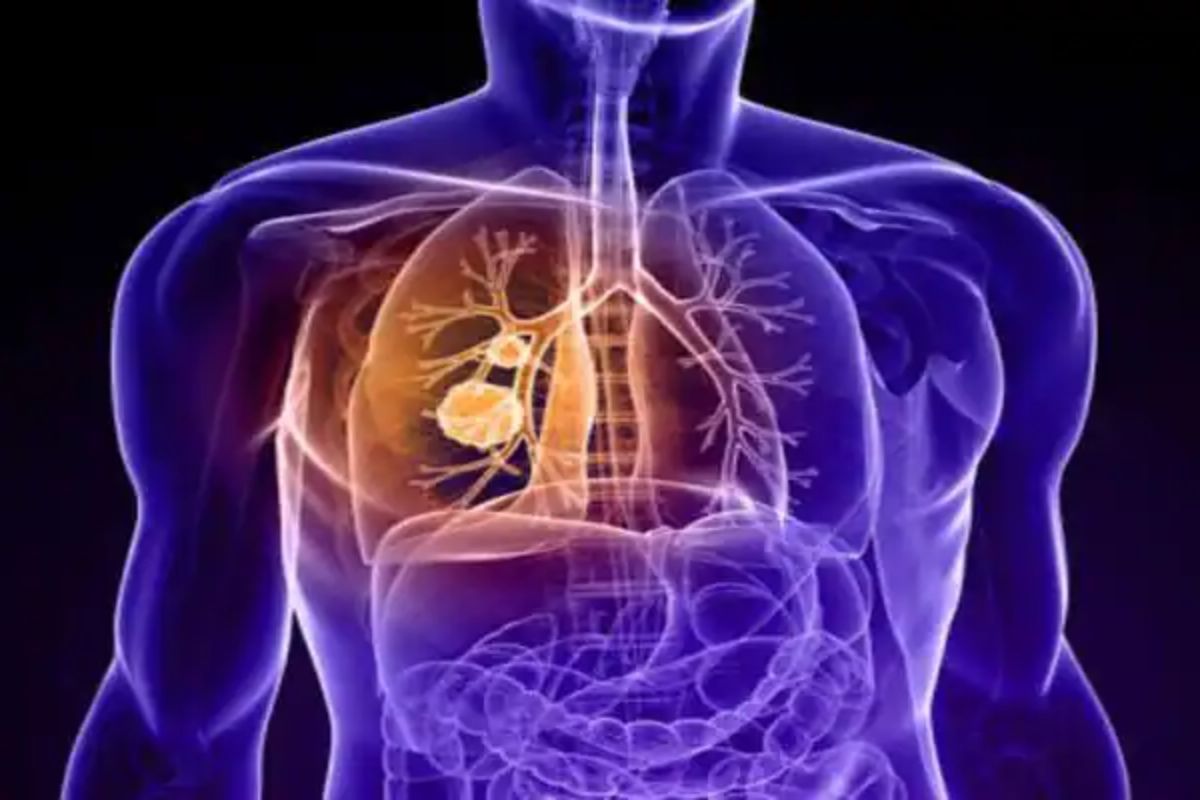Risk of bronchitis is increasing with air pollution in Delhi NCR. Here are some tips on how to reduce the risk of, diagnose and treat bronchitis.
Health Hazards of Air Pollution: As Delhi-NCR grapples with severe air pollution, bronchitis cases are on the rise in the national capital and neighboring cities. Air quality has become ‘very poor’ and ‘severe’ amid adverse weather conditions, thali burning and post-Diwali pollution. Due to which the health of the residents has been affected. A survey conducted by a community social media platform found that in 4 out of 5 households in Delhi and surrounding areas, at least one member is facing pollution-related ailments. As air pollution continues to wreak havoc on citizens’ health, staying indoors, avoiding early morning walks, getting vaccinated against flu and pneumonia, wearing an N-95 mask when going out can help reduce the adverse effects of air pollution.
Bronchitis is increasing
Bronchitis refers to inflammation (swelling) of the lining of the bronchial tubes (airways in the lungs) that transport air to and from your lungs. It is caused by viruses, bacteria or inflammatory particles that cause inflammation in the bronchial tubes. Smoking is considered the main risk factor, but non-smokers can also be affected by bronchitis.
Air pollution increases the risk of bronchitis
“Fog can irritate the airways, reduce lung function and cause shortness of breath, pain on deep breaths, wheezing and coughing. It can dry out the protective membranes of the nose and throat and interfere with the body’s ability to fight infection, increasing susceptibility to illness,” Dr. Gurmeet Singh Chhabra, Director Pulmonology Marengo QRG Hospital, Faridabad told Hindustan Times.
What are the symptoms of bronchitis?
People with bronchitis often have the following symptoms:
- A persistent cough that produces thick, colored mucus.
- dry cough,
- wheezing
- chest pain,
- low grade fever,
- loss of appetite,
- body pain,
- chest discomfort,
- fatigue,
- Gasping.
Who is at increased risk of developing bronchitis?
“People who smoke, are obese, have asthma, GERD (gastroesophageal reflux disease), chronic obstructive pulmonary disease (COPD) or other respiratory conditions, a history of recurrent respiratory infections in childhood, autoimmune disorders or other illnesses that cause airway inflammation .susceptible to attacks of bronchitis or bronchitis-like symptoms,” Dr Chhabra told Hindustan Times.
Post-Covid complications
People with severe Covid-19 pneumonia in the past have sensitive lungs and are prone to bronchitis-like symptoms after exposure to bronchial infections or air pollution.
Dr. Chhabra also elaborates on how to go about diagnosing and treating bronchitis.
How to diagnose bronchitis?
- A chest X-ray is important for detecting pneumonia.
- Sputum tests are done to determine signs of allergy or infection.
- Through pulmonary function tests, signs of asthma or COOD are checked.
- Nasal swabs are tested for viruses such as Covid-19 or the flu.
How to treat bronchitis?
- Bronchitis caused by the flu can be treated with antiviral medications such as Tamiflu, anti-inflammatory medications such as corticosteroids, and other medications.
- Cough suppressants can help with a nagging cough. If you suffer from COPD or asthma, you may be recommended additional medications such as mucolytics or breathing treatments such as inhaled bronchodilators or steroids. Antibiotics may be needed.
- Mild cases of acute bronchitis usually get better on their own within a few weeks. Symptomatic or disease specific treatment may be required for which specialist consultation is advised.
- Severe cases may require admission, oxygen therapy, or ICU stay.
- Patients may be advised BiPAP/NIV therapy and may require mechanical ventilation in severe cases.
How to reduce the risk of bronchitis?
Here are some tips to prevent the risk of bronchitis:
- Stay indoors, keep doors and windows closed.
- Maintain good hydration
- Avoid walking in the early morning and late evening as the air is denser during these cooler hours as suspended particles settle.
- Wearing a well-fitting mask or N95 mask can be helpful in case of leaving the house.
- Avoid or limit smoking.
- Those who take inhaled medications for COPD (emphysema and chronic bronchitis) or bronchial asthma should take their medications regularly.
- Stay away from smoke, air pollution or second hand smoke
- Wash your hands frequently
- Ask your doctor and get vaccinated for flu and pneumonia (pneumococcal vaccine).
- Those who have not yet received the Covid vaccination should receive the vaccine as recommended by the treating doctor.
